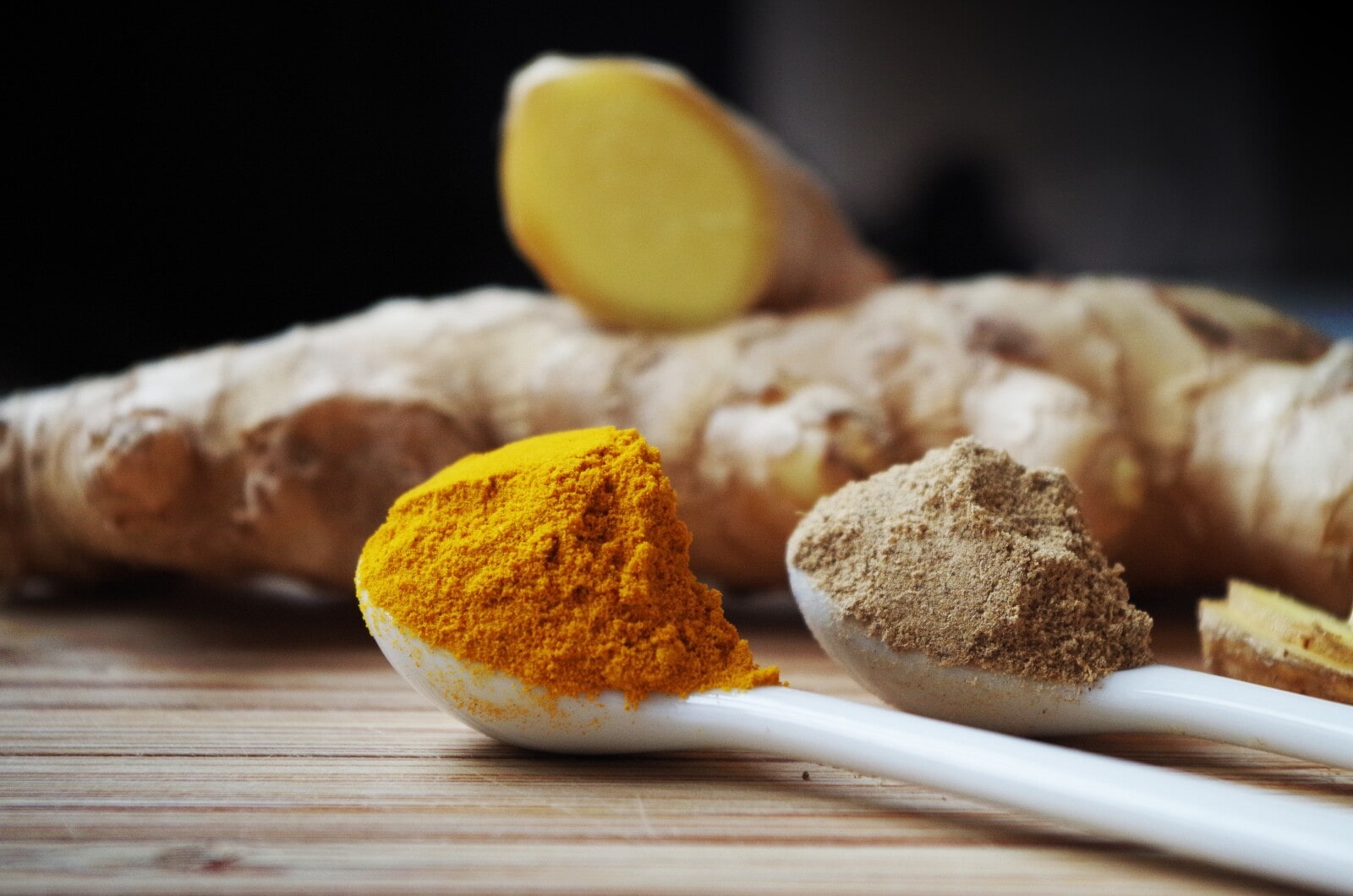The world of natural remedies is vast, with a myriad of options available to support our health and wellbeing. Two popular choices that have gained significant attention in recent years are Ashwagandha and Turmeric.
Both of these herbal supplements have been used for centuries in traditional medicine and are known for their potential health benefits. In this article, we will explore the definition, origins, health benefits, and potential side effects of Ashwagandha and Turmeric.
We will also discuss whether it is safe to take them together and how their combination can enhance their respective benefits for specific health conditions.

What is Ashwagandha?
Definition and origins
Ashwagandha, scientifically known as Withania somnifera, is a powerful herb that has been used in Ayurvedic medicine for centuries. It is native to India and some parts of North Africa and is commonly referred to as “Indian ginseng” or “winter cherry.” The name Ashwagandha is derived from the Sanskrit words “ashva,” meaning horse, and “gandha,” meaning smell. It is believed that the herb’s root has a strong aroma similar to that of a horse.
Health benefits
Ashwagandha is known for its adaptogenic properties, which means it helps the body adapt to stress and maintain overall balance. It has been used traditionally to support the immune system, improve energy levels, and promote mental clarity. Some studies suggest that Ashwagandha may also have anti-inflammatory and antioxidant effects, which could potentially help protect against chronic diseases and support overall health.
Potential side effects
While Ashwagandha is generally considered safe for most people when taken in recommended dosages, it may cause mild side effects such as upset stomach, diarrhea, or drowsiness in some individuals. Pregnant and breastfeeding women, as well as those with autoimmune diseases, should exercise caution and consult with a healthcare professional before using Ashwagandha.

What is Turmeric?
Definition and origins
Turmeric, scientifically known as Curcuma longa, is a bright yellow spice commonly used in Indian cuisine. It has been a staple in traditional Ayurvedic and Chinese medicine for centuries. Turmeric is derived from the underground stems of the turmeric plant, which are dried and ground into a fine powder.
Health benefits
Turmeric is best known for its active compound called curcumin, which is responsible for its vibrant yellow color and numerous health benefits. Curcumin is a powerful antioxidant and anti-inflammatory agent. It has been studied extensively for its potential positive effects on heart health, brain function, joint health, and digestion. Turmeric also has antimicrobial properties that may help support the immune system and promote overall wellness.
Potential side effects
When consumed in moderate amounts as a spice in food, turmeric is generally safe for most people. However, high doses or long-term use of turmeric supplements may lead to gastrointestinal issues, such as stomach upset or diarrhea. Individuals with gallbladder problems or those taking certain medications, such as blood thinners, should consult with a healthcare professional before adding turmeric supplements to their routine.
Ashwagandha vs Turmeric
Comparison of health benefits
While both Ashwagandha and Turmeric have potential health benefits, they have different areas of focus. Ashwagandha primarily targets stress management and overall balance, while Turmeric, specifically its compound curcumin, is known for its anti-inflammatory and antioxidant effects. Depending on your specific health concerns, one of these supplements may be more suitable for you than the other.
Different mechanisms of action
Ashwagandha and Turmeric work through different mechanisms in the body. Ashwagandha acts on the hypothalamic-pituitary-adrenal (HPA) axis, helping to regulate the stress response and promote a sense of calm. Turmeric, on the other hand, exerts its effects through its compound curcumin, which has been shown to modulate various molecular pathways involved in inflammation, oxidation, and cellular signaling.
Which one is better?
The question of whether Ashwagandha or Turmeric is better ultimately depends on your individual health goals and needs. If you are looking for support in managing stress, improving energy levels, or promoting overall balance, Ashwagandha may be a suitable choice. On the other hand, if you are seeking support for joint health, digestion, or inflammation-related issues, Turmeric, specifically its curcumin content, may be a better fit for you. It is always recommended to consult with a healthcare professional before starting any new supplement.

Can You Take Ashwagandha and Turmeric Together?
Interactions and compatibility
Yes, it is generally safe to take Ashwagandha and Turmeric together. In fact, combining these two herbal supplements may enhance their respective benefits due to their different mechanisms of action. Ashwagandha can provide stress management support, while Turmeric can contribute to reducing inflammation.
Enhancing each other’s benefits
Ashwagandha and Turmeric can complement each other’s benefits when taken together. The adaptogenic properties of Ashwagandha can help the body better cope with stress, while Turmeric’s anti-inflammatory effects can support joint health and overall well-being.
Recommended dosages
The recommended dosage for Ashwagandha and Turmeric may vary depending on the specific product and form of supplementation. It is important to follow the instructions provided by the manufacturer or consult with a healthcare professional to determine the appropriate dosage for your individual needs.
Combining Ashwagandha and Turmeric for Specific Health Conditions
Stress and anxiety
The combination of Ashwagandha and Turmeric may be beneficial for individuals experiencing stress and anxiety. Ashwagandha’s adaptogenic properties can help the body adapt to stressors, while Turmeric’s anti-inflammatory effects may help reduce inflammation associated with chronic stress. However, it is crucial to address the underlying causes of stress and anxiety and seek professional guidance when necessary.
Inflammation and joint health
Individuals dealing with inflammation-related issues or joint discomfort may find the combination of Ashwagandha and Turmeric helpful. Ashwagandha’s anti-inflammatory properties, combined with Turmeric’s curcumin content, can provide comprehensive support for reducing inflammation and promoting joint health.
Brain health and memory
Both Ashwagandha and Turmeric have been studied for their potential cognitive benefits. Ashwagandha may support memory and cognitive function, while Turmeric’s curcumin may have neuroprotective effects. Taking Ashwagandha and Turmeric together may help support brain health and memory.
Digestive health
Turmeric has long been used in traditional medicine to support digestion. Its anti-inflammatory and antioxidant effects can help alleviate symptoms of indigestion and promote overall digestive health. The addition of Ashwagandha can provide stress management support, which may positively impact gut health.
Immune system support
Both Ashwagandha and Turmeric have immune-supporting properties. Ashwagandha’s adaptogenic effects can help enhance immune function, while Turmeric’s antimicrobial and anti-inflammatory properties support overall immune system health. Taking Ashwagandha and Turmeric together may provide a comprehensive approach to immune system support.

Choosing the Right Ashwagandha and Turmeric Supplements
Finding high-quality products
When choosing Ashwagandha and Turmeric supplements, it is essential to select high-quality products from reputable manufacturers. Look for supplements that meet rigorous quality standards, such as third-party testing for purity, potency, and authenticity.
Considerations for dosage and potency
Dosage and potency can vary among different Ashwagandha and Turmeric supplements. It is important to consider your individual needs, consult with a healthcare professional, and follow the recommended dosage instructions provided by the manufacturer.
Formulations and delivery methods
Ashwagandha and Turmeric supplements are available in various formulations and delivery methods. These include capsules, powders, and liquid extracts. Choose a formulation that is convenient for you and suits your preferences.
Expert Opinions and Research Studies
Opinions from health professionals
Many health professionals recognize the potential benefits of Ashwagandha and Turmeric. However, it is important to note that individual opinions may vary, and it is always best to consult with a healthcare professional for personalized advice.
Recent studies on Ashwagandha and Turmeric
Numerous studies have been conducted on Ashwagandha and Turmeric, highlighting their potential health benefits. These studies suggest that Ashwagandha may help reduce stress and improve overall well-being, while Turmeric, specifically its curcumin content, may have anti-inflammatory, antioxidant, and neuroprotective effects. However, more research is needed to fully understand the mechanisms and benefits of these herbal supplements.

Precautions and Possible Side Effects
Potential interactions with medications
Ashwagandha and Turmeric may interact with certain medications. It is important to consult with a healthcare professional if you are currently taking any medications, especially blood thinners, anticoagulants, or medications metabolized by the liver, to ensure there are no potential interactions.
Caution for specific health conditions
Individuals with autoimmune diseases, gallbladder issues, or specific health conditions should exercise caution and consult with a healthcare professional before using Ashwagandha and Turmeric supplements. These herbal supplements may not be suitable for everyone, and professional guidance is essential.
Common side effects
Common side effects of Ashwagandha and Turmeric supplements may include upset stomach, diarrhea, or drowsiness. These side effects are usually mild and transient. However, if you experience any severe or persistent side effects, discontinue use and seek medical attention.
Conclusion
Ashwagandha and Turmeric are both popular herbal supplements known for their potential health benefits. While they have different areas of focus, they can complement each other well when taken together. However, it is important to choose high-quality products, follow recommended dosages, and consult with a healthcare professional before adding any new supplements to your routine.
Remember, your health is unique, and what works for one person may not work for another. Listen to your body, prioritize self-care, and make informed decisions with the guidance of qualified professionals.




